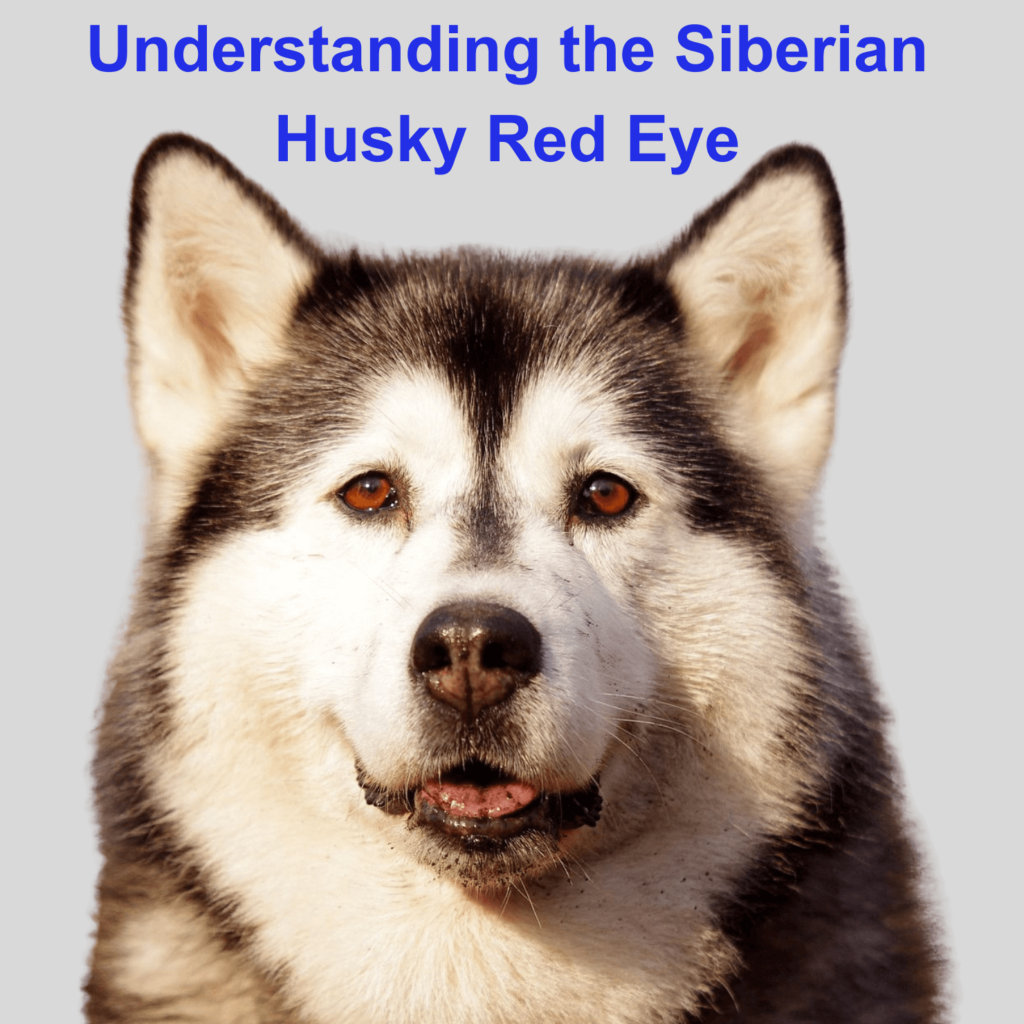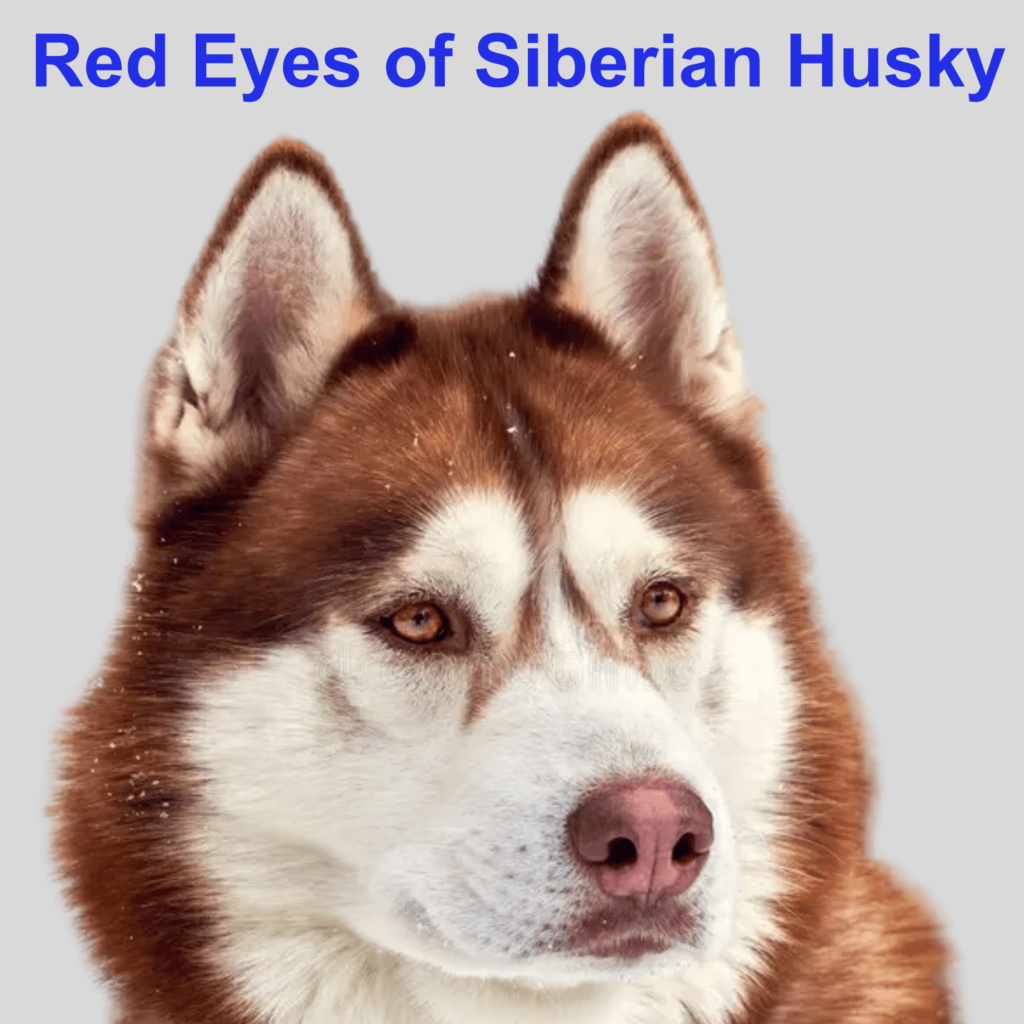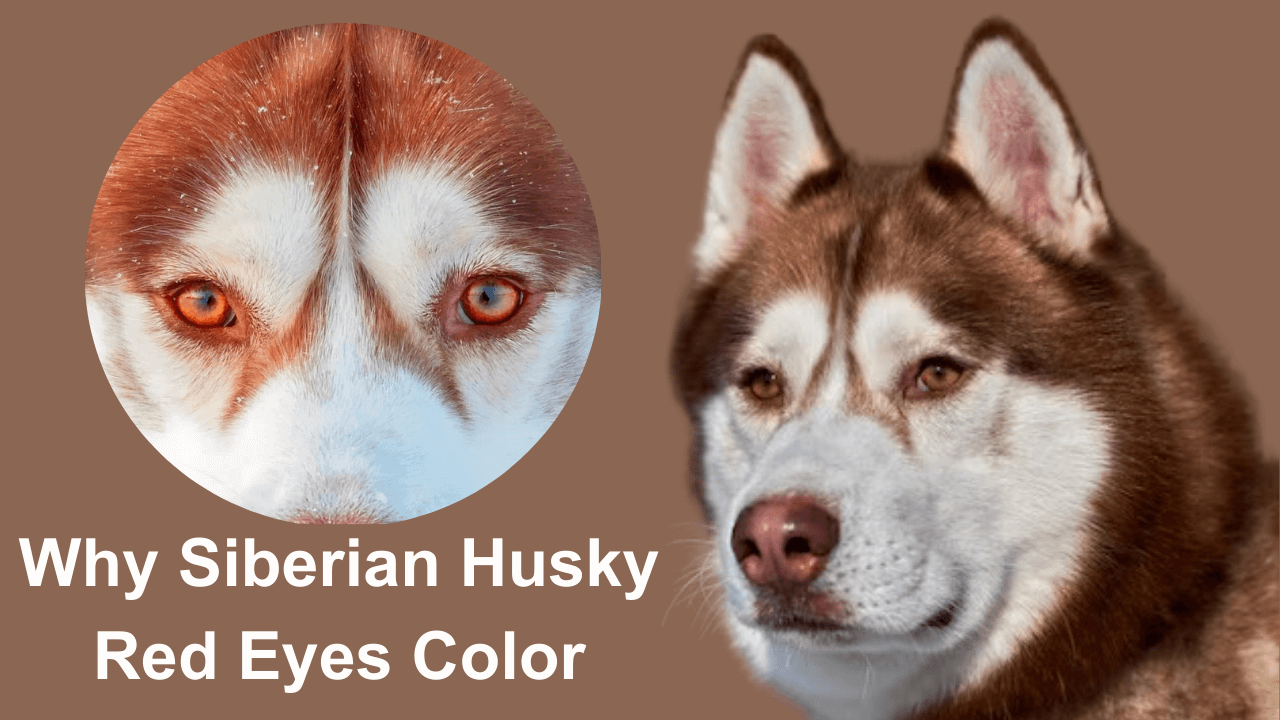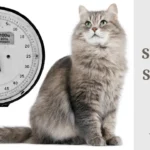The enchanting look of the Siberian Husky red eyes color is one of the most remarkable features of the breed. However, when those lively eyes turn red owners may become concerned. Redness in a Siberian Husky’s eyes can be a symptom of several conditions ranging from a minor annoyance to a serious health problem.
This comprehensive guide uncovers the mystery behind bloodshot eyes in Siberian Huskies and explores the possible reasons, effects and steps you can take to ensure your furry companion’s health.
Understanding the Husky Red Eye Phenomenon:
Red eye in dogs, including Siberian Husky red eyes color occurs when the blood vessels in the eye dilate or become red and inflamed, which is called hyperemia. This can affect one or both eyes and may be accompanied by other symptoms such as discharge, squinting or rubbing of the eyes. There are many causes and it’s important to understand them in order to provide the right treatment.

Top 8 Causes & Treatment of Siberian Husky Red Eyes Color:
Irritants in the environment:
Siberian Huskies are adventurous and love to explore the outdoors. This can expose their sensitive eyes to irritants such as dust, smoke, pollen and chemicals. These irritants can cause conjunctivitis which causes redness, itching and discomfort.
Allergies:
Like humans, dogs can also suffer from allergies. Allergic reactions in huskies can be due to a variety of allergens such as food, pollen, mold and household chemicals, causing red, itchy and watery eyes.
Infection Change in Siberian Husky red eyes color:
Bacterial, viral and fungal infections can cause conjunctivitis and keratitis in Siberian Huskies. If left untreated, these infections can lead to more serious health problems in the Husky’s eyes.
Glaucoma:
Glaucoma is a serious eye disease characterized by increased intraocular pressure in Siberian Huskies. It causes severe pain and redness in Siberian Huskies and can lead to vision loss. Prompt veterinary treatment is required to combat this disease.
Uveitis:
Uveitis is inflammation of the choroid (including the iris, ciliary body and cornea) in a husky’s eye. It causes redness, pain, light sensitivity and blurred vision in the eyes of Siberian Huskies. Uveitis can be caused by a number of factors including autoimmune diseases, infections and eye injuries.
Dry eyes in huskies with redness:
This eye condition occurs when the eye doesn’t produce enough tear fluid to keep the eye moist, causing irritation, redness and discharge from the eye. Treatment of this condition is important to avoid complications such as corneal ulcers.
Physical injury:
Injuries from fights struggles or accidents can cause redness and swelling of the eye. Minor injuries may heal spontaneously but watch for signs of infection or deeper damage to the eye.
Foreign objects:
Foreign objects such as seeds, thorns or dog hair can enter the eye and cause irritation, redness and discomfort. The foreign body must be removed to relieve symptoms.
Diagnosing Red Eyes in Siberian Huskies:
In order to diagnose the cause of red eye the veterinarian should perform a thorough examination. This may include a physical examination of the eyes testing for tear production and intraocular pressure and may include blood tests or imaging to detect systemic problems.
Preventing of Siberian Husky eyes color:
- Although not all common causes of eye redness can be avoided there are measures that can be taken to reduce the risk:
- Check your husky’s eyes regularly for signs of irritation or abnormalities.
- Keep your home and your pet’s environment clean to prevent dust and chemical irritants from entering the eyes.
- Be careful not to expose your dog’s eyes to potential allergens and consult your vet for allergy tests if necessary.
- Make sure your husky has access to clean water and healthy food to improve its general health and immunity.
- Provide your dog with protective equipment, such as goggles, when outdoors, especially in windy or sandy environments.

When to See a Vet of Husky Eye Color:
If you notice redness in your Husky’s eyes especially if it is joined by other symptoms such as discharge, squinting or severe pain, and immediate veterinary attention is required. Early diagnosis and treatment can prevent more serious complications and keep your dog’s red eyes healthy and comfortable.
Conclusion:
Siberian Husky red eyes color can indicate a variety of conditions, ranging from harmless, easily treatable problems to more serious health issues. It’s important to understand the possible causes and know when to see a veterinarian to ensure your husky’s eyes stay healthy and have the charm they deserve. With proper care and attention you can help maintain your pet’s vision and health so they can continue to explore the world with beautiful, clear eyes.
Read more: Siberian Husky red color
Frequently Asked Question:
Will the redness of my Siberian Husky’s eyes go away spontaneously?
If it is a mild irritation caused by environmental factors, the eye color may disappear without any action if the cause of the irritation is removed. However, it is important not to ignore eye redness. This is because red eyes may indicate a more serious condition that requires veterinary care.
Are any Huskies prone to red eyes?
All Siberian Huskies can have red eyes for various reasons. However, breeds with weak immune systems or those exposed to harsh environmental conditions may be more susceptible to diseases that cause red eyes.
How can I prevent red eye in my Husky?
Maintaining a clean environment, avoiding known allergens, providing adequate protection during outdoor activities, and regular check-ups by a veterinarian are important steps in prevention.
What should I do if I notice redness in my Husky’s eyes?
If you notice redness in your Husky’s eyes look out for other symptoms such as discharge, squinting, or changes in behavior. Contact your veterinarian, especially if the redness persists or is accompanied by other signs of discomfort or illness.
Do I need to see my veterinarian for red eyes?
While some minor redness can be treated at home with proper care and hygiene measures, it is important to visit your veterinarian to rule out serious illness. Treating the condition on your own without a professional diagnosis may make the eye condition worse.
Can diet affect my Husky’s eye health?
Yes, a well-balanced diet rich in essential nutrients contributes to overall health, including eye health. For example, omega-3 fatty acids have anti-inflammatory properties that help maintain eye health.










